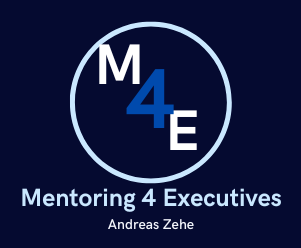Congrats, you decided to hire a Mentor to get help, insights and advise for your upcoming challenges. That was a big step, but, before accounting the benefits of your decision, you need to find the right person to join you on your path forward. Every Mentor is different from the other. Taking the steps for choosing your Mentor correctly is as important as selecting a new colleague for a vacancy at your company or project. You want to look for experience, skills, attitude, and the right personality to match with you and your needs. Follow along with me to find your Mentor:
What do you want?
The first step is to clearly define what you want. What are your Goals and Objectives and what do you hope to achieve through this mentorship? Are you looking for career advancement, skill development, personal growth, or something else? Having a clear understanding of your goals is fundamental for identifying a mentor who can best support you in achieving those objectives.
What is your baseline?
Now, as you have defined where you want to go, you should assess your baseline – where you are at this point in time. What are your strengths and weaknesses? What areas or skills do you need to improve? Are there specific challenges you are facing in their career or personal life?
Identifying areas of need will help you seeking a mentor with expertise in those areas. Even more important, it helps you to prepare for the future Mentoring Sessions.
Relevance of your industry vs experience?
Depending on your goals and objectives, it’s important to consider the industry or domain they are in. Different fields may require mentors with specific industry knowledge and connections. I know from my own experience that the Pharmaceutical Industry requires a different skillset than Finance & Banking. But have in mind that defining the relevant industry or domain will narrow down the pool of potential mentors.
If the industry is not as relevant, you for sure want seek mentors who have experience and expertise relevant for your purpose. This might include years of experience in the field, a record of accomplishment of leadership, or specific accomplishments that align with your goals. If you wish to relocate from Australia to Brazil, the industry you are in might not be so relevant. But for sure you want to talk to someone who has relocated over continents in her/his career already.
Some important Soft factors
You will be spending time with your Mentor. A Mentoring process can last over several months, if not years. And not everything you will discuss will be easy to digest. Therefor it is important to match with your Mentor the aspects which are important to you.
Effective communication is essential in mentorship. You want to look for mentors who are good communicators and can convey ideas and guidance clearly in a way you are comfortable.
Availability and Commitment: This is a crucial factor. Does your potential Mentor have availability in his agenda? Is she/he committed to invest time and efforts into the Mentor-Mentee relationship, beyond the hours she/he spends in sessions with you? The Mentor always has some work to do after or before sessions. She/he should be able to review session notes, do some research on specific topics for being better prepared and should have a certain flexibility in her/his agenda to meet your requirements. If the mentor is too busy, she/he might not be the best fit for you.
Consider Compatibility: this is crucial in a mentorship relationship. You might want to think about your working style, communication preferences, and personality traits. With that in mind you can define what type of mentorship style would work best for you, whether it’s a more hands-on approach or a more hands-off guidance.
Aligning with a mentor who shares similar values and principles can be important. This helps ensure a more harmonious and ethical mentorship relationship. Therefor you want to consider what values and principles matter most to you select your Mentor accordingly.
At the end, as result of a good Mentor – Mentee relationship, trust will be built.
Experienced Mentor
Track record as a Mentor: It’s interesting, albeit not mandatory, to seek mentors who have a history of successful mentorship. Mentors who have positively impacted the careers and lives of others are often good choices. But try to look behind the curtain; A Mentor who already worked a specific Mentoring topic with many clients, might become “operationally blind” for your specific situation.
Not only because of that, but also in general it’s a good idea to start with a trial period of e.g. 3 to 5 sessions to see if the mentorship relationship is a good fit. This allows both parties to assess compatibility and effectiveness before committing to a long-term mentorship. A good Mentor will be open for this.
Some additional remarks:
Mentoring is your personal matter! While those closer to you for sure want be helpful, have in mind that the selection of a Mentor is a very personal choice and decision. So, listen to input if you wish, but don’t let anyone make up your mind in this matter.
The vast majority of Mentor will charge for their services. That’s ok because they are “selling” their time, experience, and knowledge to you. But think twice when engaging with someone who wants to charge you for a (normally short) “Get to know each other”- session, which usually takes less than 30 minutes. This should be free of charge.
Many Mentors however will ask you to prepare a brief outline of what you want to achieve during the Mentoring Programe and have that send in advance of that session.
Are you interested in having a professional Mentor helping you with your challenges?
